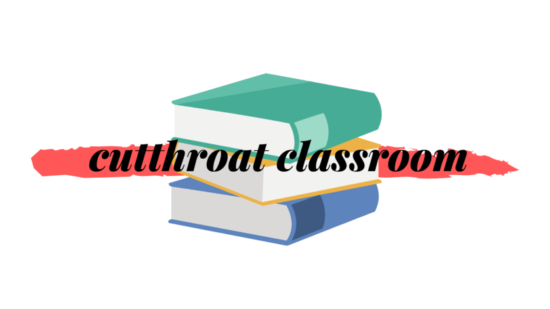Prep school pressure
Preparatory high schools should redirect the conversation in the midst of the college admissions scandal
When the college admissions scandal broke, my high school was mentioned on almost every major newscast in Los Angeles: Harvard-Westlake School. My high school group chats began pinging uncontrollably: “Omg this is so classic.” “Haha I bet HW parents were a part of this.” “LOL HW families going to jail.”
We joked. But we were transported back to those cutthroat classrooms where as a 17 year old, the red-inked number on your practice SAT determined your self-worth for the next day. We began pouring out memories of our intense, bi-weekly college counseling meetings; our overly rigorous schedules stacked with AP classes; the infamous big blue binder that sat ominously in our senior lounge — a laminated book filled with years of statistics on GPAs; and the often unexplainable results of previous college admissions.
I remember countless afternoons walking out of my college counselor’s office and into my friend Bridget’s arms in tears, commiserating about the hours we spent doing AP Psychology test prep and AP Statistics problem sets late into the night. “What is this all for?” we’d all lament.
Looking back at these memories through a retrospective lens, I feel foolish and ashamed. I’d feel hesitant to answer when people asked me where I’d gone to high school during my freshman year of college at USC. I couldn’t quite put my finger on why. Harvard-Westlake ignited my passion for learning — for writing, reading and the humanities. Why did I feel the need to hide the education that formed me?
But after this latest scandal broke, it became clear to me that while a school like Harvard-Westlake has the ability to transform students through education, these type of preparatory schools and communities also are key players in shaping a skewed value system that thrives in our generation.

In a New York Times op-ed piece about the tainted morality behind the college admissions scandal, Frank Bruni writes about high schools like my own. He says, “For these kids, education isn’t an opportunity to wring more meaning from life and make a more constructive impact on the world. It’s transactional. It’s a performance. If the right audience doesn’t clap, there was no point in even taking the stage.”
Many kids at my prep school ultimately compromised learning in order to achieve some “perfect” end goal. I can say this because I distinctly remember choosing to take AP Bio over a second English elective, spending nights torturing myself over enigmatic SAT math problems instead of writing articles for the school paper that I was passionate about. And for what? So that I could tell community members I’d gotten into some prestigious school?
With the imposing noises of status constantly ringing in my ears, it became hard to listen to myself.
In the midst of the latest drama, it is easy for me to resent the community that I come from. I want to confront the parents who preached status over internal satisfaction. It is easy to only remember the stress and the judgement hurled at us from every angle. But looking at my education solely in this negative light would be a huge disservice to the outstanding educators that shaped me.
I remember the school psychologist’s kind grey eyes. I remember the savory smell of Middle Eastern meats that my Israeli history teacher brought for our class to taste each Friday. I remember the long personalized lists of book recommendations my AP Literature teacher crafted specifically for each student.
At the top of my list was Virginia Woolf’s Mrs. Dalloway. I read the book in one night. It sparked my love for literature and propelled me to become an English major.
Ms. Bek, Mr. Yaron, Ms. Medawar — these teachers’ fingerprints are stamped on all of the pieces I write, all of the college courses I’ve taken, all of the career paths I may walk. These teachers have chosen to dedicate their time and energy to helping young students locate and cultivate passions that we end up pursuing.
Having spoken to students at USC from all walks of life and completely different socioeconomic backgrounds and educations, I realize just how lucky we were as high school students. But as teenagers instead of focusing on the unique opportunities for learning, we were taught to focus on the future and ensure our next step sounded like “success.”
We were all always going to go to college — a luxury that not everyone can claim with certainty. But beyond that, I was privileged enough to go to a high school where I could take Shakespeare and Playwriting as electives. I was lucky enough to have mentors who showed me the quiet magic of great novels and the power of the written word.
I wish I valued and emphasized them more at that time. And amidst this latest scandal, we cannot forget all of the positive ways in which these teachers have shaped our lives.
Almost all of the talk around the scandal now emphasizes the culture of competition and the obsession with reputation that is cultivated in these rigorous educational environments. But it would be wrong to only see these institutions as morally corroded.
We shouldn’t let the suspect values of certain families wipe out all of the hard work our educators have put in. All of my teachers always pushed me to learn for the sake of learning; they disregarded politics and pressure, no matter how great, in order to fuel the true purpose of a high school education — to excite curiosity, explore the fields that we care about, and show us the wonders of learning.